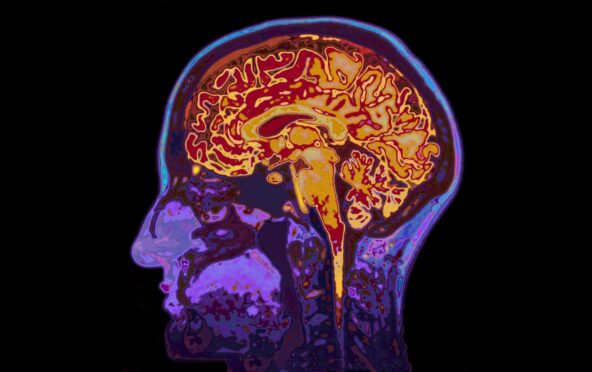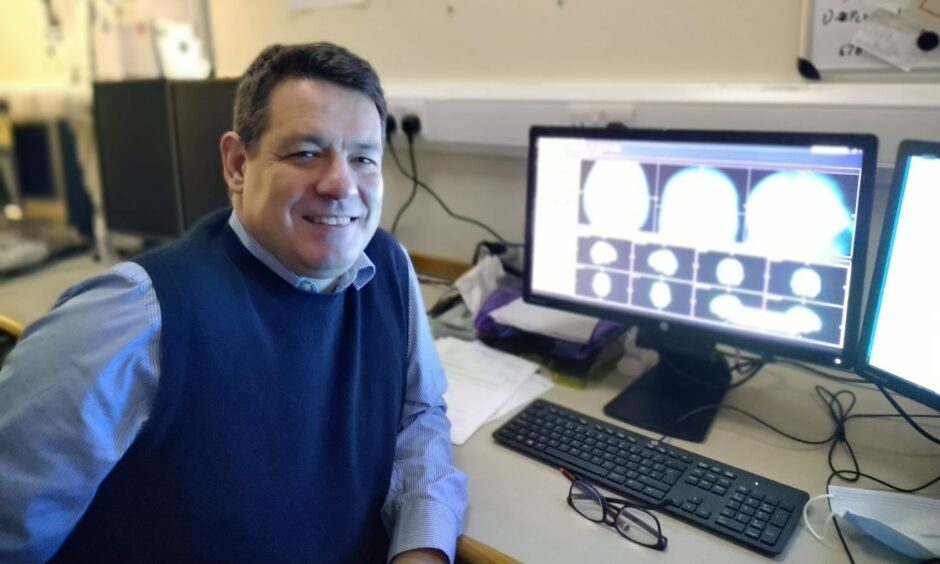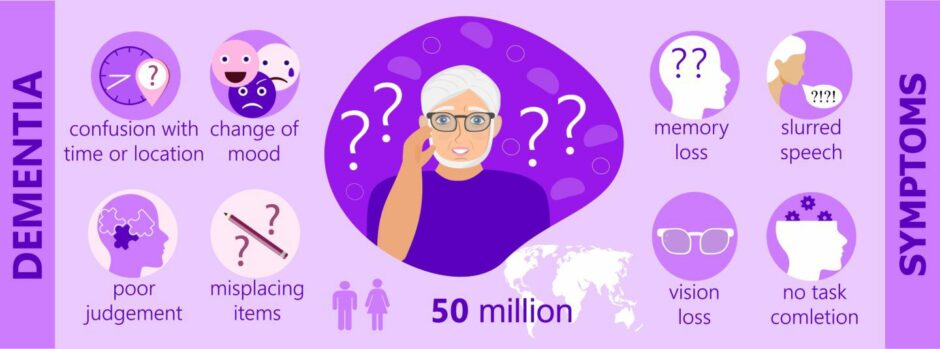A new online brain check-up tool has now been developed to show us how we can reduce the risk of developing dementia.
According to the latest evidence, up to 40% of cases could be prevented if 12 risk factors are eliminated.
We’ve spoken to Professor Roger Staff, who works at Aberdeen University, about the tool and some of the changes it suggests you can make, at any stage of your adult life, to improve your brain health.
And he talks to us about how you can also take a DNA test to check if you have a higher chance of developing Alzheimer’s disease.
Keep your brain active
Engaging in challenging and mental activities can build up your brain’s ability to cope with disease and reduce stress.
Learning a new language, reading books, doing puzzles or playing a musical instrument are all activities which can help.
Dr Staff says there’s evidence that people working in mentally stimulating jobs may be less likely to develop dementia.
But he highlights that there are other ways to protect yourself if your job is not mentally demanding.
He says: “You may be a painter and decorator, but you may be an expert on the works of Proust.”
Stay socially active
More social contact with friends and family can also help protect you.
Research shows that people with larger social networks who develop dementia either get it later in life, or have a less severe case.
You could join a club, walking group or volunteer with a charity in your community, or just make sure you keep in touch as much as possible with the people in your life.
What foods can help?
There’s evidence that eating a Mediterranean diet can help reduce your risk too.
It’s a diet high in fruits, vegetables, legumes, oily fish and cereals and many of the foods are a good source of antioxidants.
These antioxidants can neutralise or mop up harmful free radicals helping to protect your brain cells against damage associated with Alzheimer’s disease.
Why is a good sleep so important?
Dr Staff, a professor of imaging, highlights that there appears to be a strong link between sleep disorders and dementia.
Research has found that people who regularly sleep for six hours or less in middle age have a higher risk of dementia.
But Dr Staff says the link is not yet clear.
“Whether you’re having disturbed sleep because of dementia or whether it’s the other way round is unknown,” he says.
How can I do a DNA test?
Dr Staff highlights that there are now genetics companies that will test your DNA to help you get insights into your health.
All you need to do is send in a saliva sample to companies such as 23andme and they’ll compile a report and send it back to you.
You’ll find out whether you’re at increased risk of developing late-onset Alzheimer’s disease, a type of dementia, based on your genetics.
But Prof Staff stresses that having an APOE e4 gene does not mean that you have, or will, develop the condition.
“It’s just a case of raising the risk,” he says. “You may have a genetic risk but you may want to lower your environmental risk through actions that you can take.”
Where can I find the new brain health check-up tool?
The new tool has been developed by Alzheimer’s Research UK. More than 50,000 people from across the UK have completed it since it launched earlier this month.
You can find it at www.alzheimersresearchuk.org/brain-health/check-in/
It takes around 10 minutes to complete and will highlight the areas in your life where you are doing well and also where you can do more to look after your brain.





Conversation